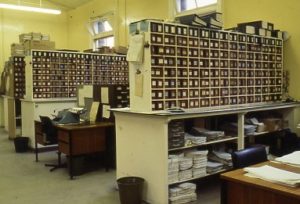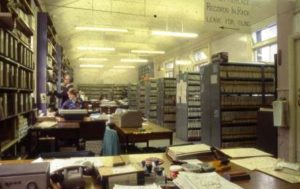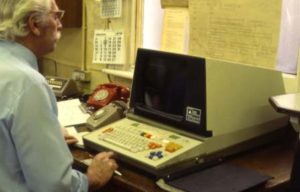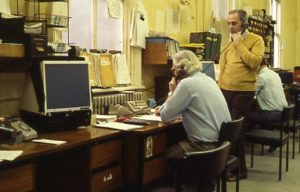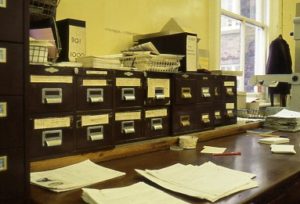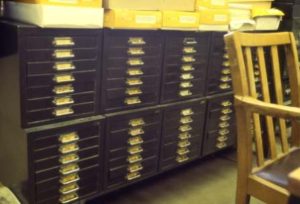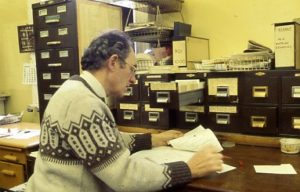MER.C.R.O. (MERSEYSIDE CRIMINAL RECORDS OFFICE) by george weeks, retired
MER.C.R.O. or the Merseyside Criminal Records Office to give it its full title had small beginnings but blossomed into one of the major departments in Liverpool City Police, Liverpool & Bootle Constabulary and Merseyside Police. Originally in back rooms at Hardman Street Police HQ, upon its move to Canning Street Headquarters it occupied half a floor and incorporated the Minor Records Department which had formally been housed in the Main Bridewell. The main office recorded ‘recordable crime’ which was crime which had to be reported to New Scotland Yard, whilst the Minor Records Department recorded lesser offences such as drunkenness. Combining the two together meant that it was easy to search both when required.
MER.C.R.O. was not just a store for records but also had responsibility for producing the daily ‘Crime Informations’, both local and general, which were circulated throughout the Force and also to other Forces throughout the county. This was a method of telling people what crimes had been committed and which people were wanted or suspected of crime.
The M.O. or Modus Operandi index was also maintained in MER.C.R.O. where methods used by criminals to commit crime where recorded upon conviction. This was then searched against new crimes and possible suspects were passed to the detective in charge of the case.
Wanted and suspected criminals were recorded in another index which included people circulated by other forces.
Stolen property was also recorded in files so that it could be checked against property recovered by officers and returned to its owner.
A photographic index of criminals was also maintained and used to compile albums of offenders who had committed particular, usually serious, crimes. These could be further defined by physical characteristics such as age. Such albums could be shown to witnesses, under strict guidelines, in an effort to identify offenders.
A twenty four hour staff was maintained at the office so that arresting officers could telephone in, report the arrest, and learn if their prisoner was wanted or suspected of other offences. They would also be told if the individual had a criminal record. Once a search had been carried out, copies of any record would be forwarded to the relevant court so that it could be made aware of the person’s criminal history.
Once the Police National Computer (PNC) became live in 1974, arrested persons were searched against information held on it. Specialist civilian staff at MER.C.R.O. were employed to update information on the computer which was provided by police staff.
George Weeks (Superintendent, retired)
Mer.C.R.O. no longer exists. However what it did has transformed into what we know today as, The Criminal Records Bureau (CRB) and remains in Liverpool.


